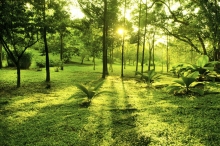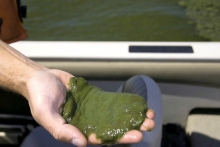

By Cynthia Lee, McGill Newsroom
Life in the city changes cognition, behavior and physiology of birds to their advantage
Birds living in urban environments are smarter than birds from rural environments.
But, why do city birds have the edge over their country friends? They adapted to their urban environments enabling them to exploit new resources more favorably than their rural counterparts, say a team of all-McGill University researchers.

By Chris Chipello, McGill Newsroom
Study by McGill researchers assesses short-run impacts on households, industries
The cost burden of Quebec’s carbon-pricing policy, is likely to be modest across income groups and industries, according to a McGill University research team.

By Katherine Gombay, McGill Newsroom
Arctic peoples inherently able to adapt given changes to various non-climatic factors


Cyclists in Montreal and Toronto can now choose the least polluted routes to get around their cities thanks to an online tool developed at McGill University. Sometimes a detour of less than 1 km can make for a much less polluted ride.


The organisms commonly known as blue-green algae have proliferated much more rapidly than other algae in lakes across North America and Europe over the past two centuries – and in many cases the rate of increase has sharply accelerated since the mid-20th century, according to an international team of researchers led by scientists at McGill University.

The Great Lakes have been invaded by more non-native species than any other freshwater ecosystem in the world. In spite of increasing efforts to stem the tide of invasion threats, the lakes remain vulnerable, according to scientists from McGill University and colleagues in Canada and the United States.

Montreal Gazette | Jan 25, 2015
BY: Rene Bruemmer
The Canadian committee of economists headed by McGill University economics professor Chris Ragan, are looking at ways Canada can follow the lead of other countries and start taxing pollution instead of jobs and profits, without hurting taxpayers or Canadian firms’ ability to compete internationally.
Read the full story here


